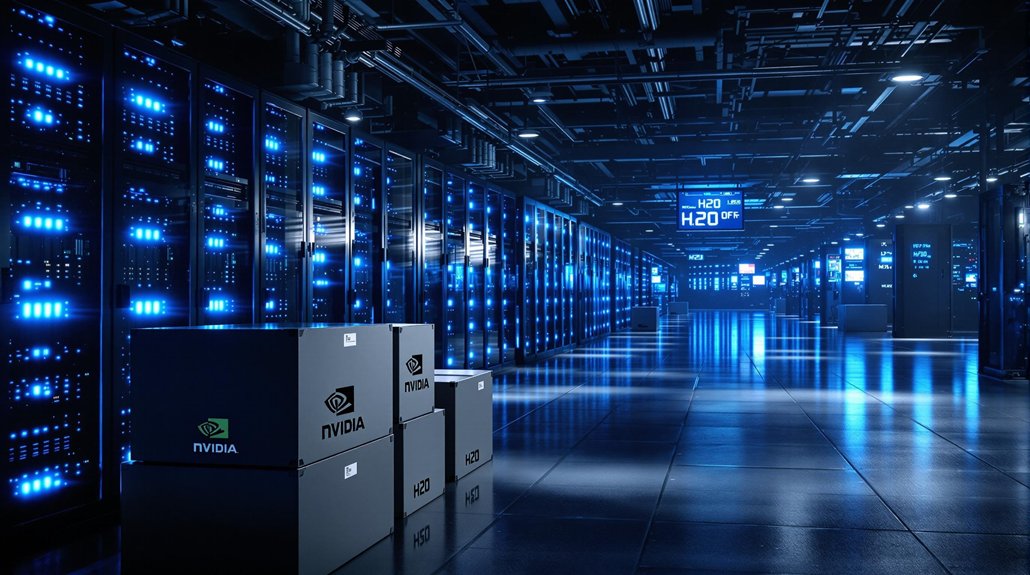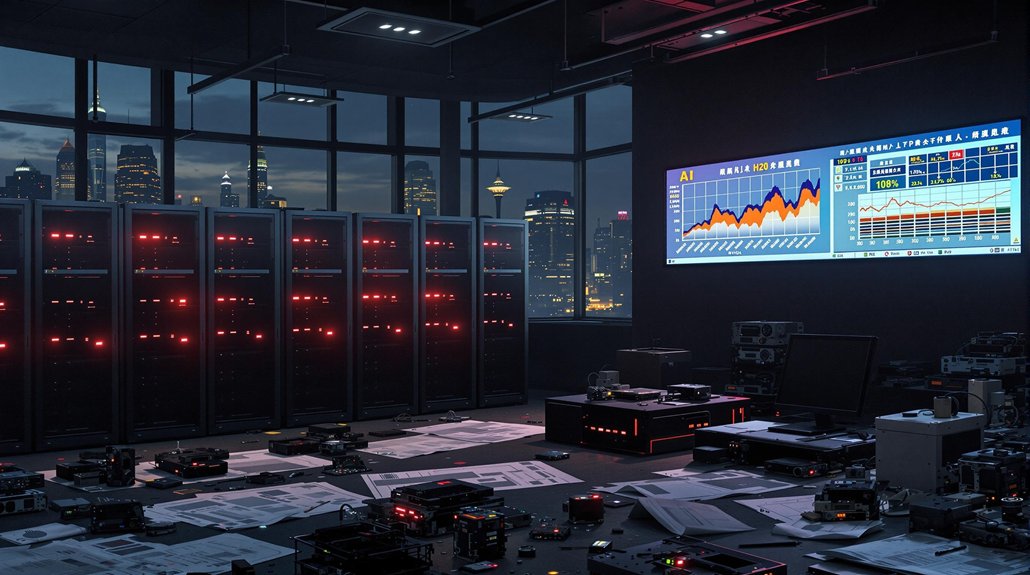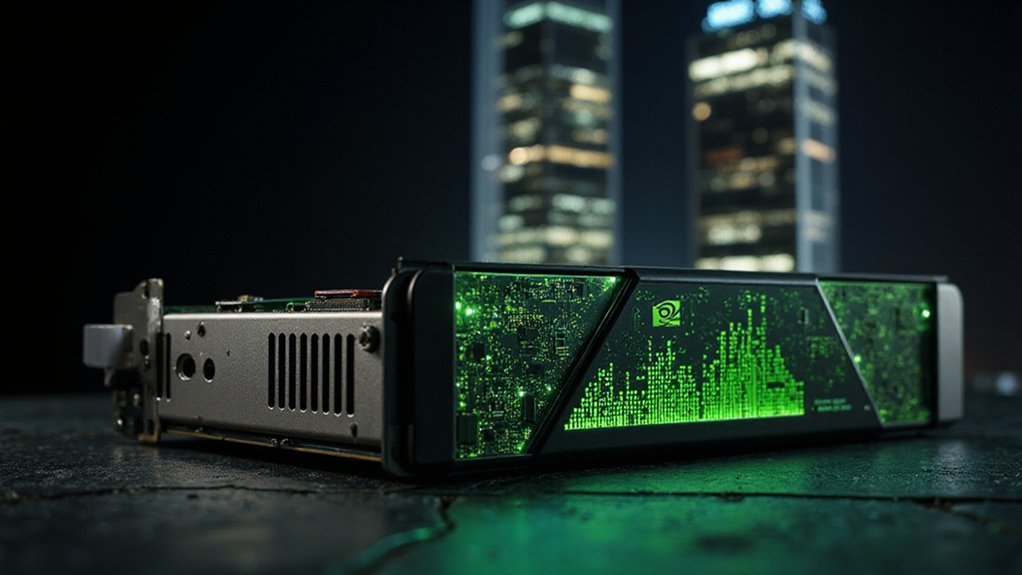Chinese tech giants ByteDance, Alibaba, and Tencent have ordered $16 billion worth of Nvidia’s H20 chips amid tightening U.S. export restrictions. These companies are stockpiling AI chips to sustain their AI development as America limits China’s access to advanced technology for potential military use. The H20 chip, while 15 times slower than Nvidia’s latest processors, remains legal under current regulations. This strategic hoarding reflects China’s urgent push to secure essential AI components before further sanctions hit.
While U.S. export restrictions tighten, Chinese tech giants are racing to secure their AI future. ByteDance, Alibaba, and Tencent have ordered $16 billion worth of Nvidia’s H20 chips in early 2025. These companies are building vast stockpiles to sustain their AI progress amid fears of stricter U.S. bans.
The H20 chip has become essential for China’s AI development despite running 15 times slower than Nvidia’s latest Blackwell processors. These chips comply with U.S. rules introduced in October 2023, which ban the sale of Nvidia’s most powerful chips like the A100 and H100 to Chinese firms. The H20’s legal status makes it a strategic asset for maintaining China’s AI research momentum.
Chinese companies primarily use these chips for inference workloads rather than training advanced models. The surge in orders reflects growing demand for powering less complex AI models from startups like DeepSeek. Large tech companies receive priority for H20 chips, creating intense competition among smaller players. The global AI market is expected to exceed $190 billion by 2025, making access to advanced chips crucial for companies wanting to compete internationally.
The Biden Administration’s export controls aim to limit China’s access to cutting-edge AI technology for military applications. Despite these restrictions, concerns about smuggling persist, with estimates suggesting PRC-linked actors might move hundreds of thousands of chips annually, representing up to 4% of global production. Underground markets in Shenzhen’s tech hub have emerged as primary channels for smuggled AI chips, with transactions increasing throughout 2023.
These limitations create significant challenges for China’s AI industry. The shortages hinder Chinese companies’ ability to compete in advanced AI research. Beijing is actively pursuing local chip manufacturers to reduce dependence on Nvidia products. While Nvidia’s CEO reports minimal short-term impact from the restrictions, the company plans to shift production to the U.S. over time.
This stockpiling behavior mirrors previous actions when sanctions targeted Huawei. Chinese firms have historically responded to U.S. restrictions by diversifying import sources and accelerating domestic chip innovation efforts, though these still lag behind imported technology.
As tensions continue, the strategic hoarding by Chinese tech giants could create artificial scarcity in global markets and influence semiconductor prices worldwide, while highlighting China’s determination to protect its technological advancement.









